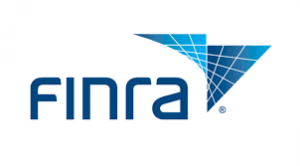
In Next Financial Group, Inc. v. GMS Mine Repair and Maintenance, Inc., Case No. 3:19-cv-168 (USDC W.D. Pa.), the federal court was asked to define the term “customer” as it relates to FINRA’s Code of Arbitration Procedure. The definition of that term carries significance because “customers” can compel a member firm to participate in FINRA arbitration whereas non-customers cannot. In the case at hand, GMS Mine Repair had no account with Next Financial and received no goods or services from Next Financial itself. This case bears some significance because the court compelled arbitration even though GMS Mine Repair was nothing more than an investor in the FAs outside business activity.
Background
The case arose from a supposedly fraudulent investment scheme perpetrated by Douglas P. Simanski, a former registered representative of Next Financial Group. According to BrokerCheck, Next Financial terminated Douglas Simanski in May 2016 because “RR sold fictitious investment and converted funds for his own personal use and benefit.” Mr. Simanksi currently has 30 disclosures on his BrokerCheck report, reflecting numerous settled customer claims. On November 2, 2018, the SEC filed a complaint against Mr. Simanski alleging that Simanksi “raised over $3.9 million from approximately 27 investors by falsely representing he would invest their money in one of three ventures: (1) a ‘tax free investment’ providing a fixed return for a specific number of years; (2) one of two coal mining companies in which Simanski claimed to have an ownership interest; or (3) a rental car company.” According to BrokerCheck, the SEC ultimately barred Simanski and Simanski plead guilty to criminal charges filed by the U.S. Department of Justice.
Underlying Arbitration
In September 2019, GMS Mine Repair initiated a FINRA arbitration against Next Financial. Next Financial asked the court to enjoin the arbitration by arguing that GMS Mine Repair was not a “customer” of the firm. In particular, Next Financial argued that (i) GMS Mine Repair never had a brokerage account with Next Financial; (ii) GMS Mine Repair received no investment guidance from the firm; and (iii) Simanski’s actions were outside the scope of his employment with Next Financial (meaning, his actions concerned an outside business activity).
Despite Next Financial’s arguments, the court compelled arbitration by finding that:
“[GMS Mine Repair] is a customer of [Next Financial] because [GMS Mine Repair] purchased investment services from Simanski, an associated person of [Next Financial]. Simanski provided investment advice to [GMS Mine Repair] about a black diamond mining project, which is within [Next Financial’s] business activities because {Next Financial] is in the business of providing investment advice. It is not necessary for Simanski to be acting in his capacity as a representative of [Next Financial] when he provided investment advice to [GMS Mine Repair] for this dispute to be arbitrable … All that is required for this dispute to be arbitrable under FINRA is for Simanski’s actions to have ‘some connection’ to his business relationship with a FINRA member.”
Takeaway
This case should serve as a warning for those supervising outside business activities. If this case is adopted in other districts, investors in an FAs outside business activity can compel arbitration even if they have no direct relationship with a brokerage firm.
Herskovits PLLC has a nationwide FINRA arbitration practice concerning investment disputes and defends individuals and brokerage firm with FINRA investigations and disciplinary matters. Feel free to call us for a consultation at 212-897-5410.
 FINRA Lawyer Blog
FINRA Lawyer Blog

